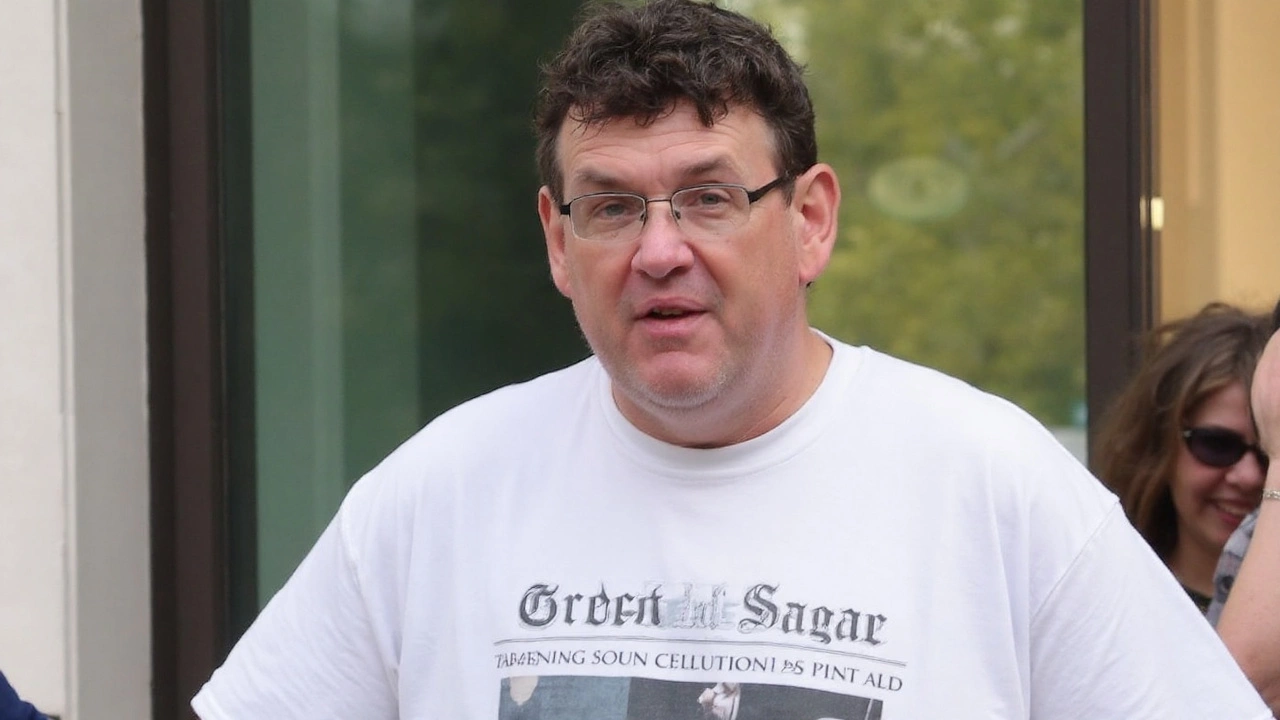Linehan denies harassment and criminal damage as London trial set
Graham Linehan, the Irish writer behind Father Ted, The IT Crowd and Black Books, pleaded not guilty to harassment and criminal damage at Westminster Magistrates' Court after allegations linked to transgender activist Sophia Brooks. The court heard the case centers on two strands: a series of social media posts between October 11 and 27 last year, and an alleged incident at a London event that same month.
Prosecutors allege Linehan harassed Brooks online over a two-week period and damaged her mobile phone, said to be worth £369, during the Battle of Ideas conference in London on October 19. In the brief hearing, he confirmed his identity and entered not guilty pleas. He wore a white shirt, grey blazer and jeans, speaking only when asked to do so by the bench.
Deputy District Judge Louise Balmain granted him bail on condition he does not contact the complainant, directly or indirectly. The trial is scheduled for September 4 at the same court. That gives both sides little time to line up witnesses, social media evidence and any video or photographs from the conference where the alleged phone damage took place.
Outside court, Linehan addressed supporters while wearing a T-shirt styled after a newspaper front page that read, “Trans women are not women.” He told the crowd he has faced “harassment, abuse and threats” since speaking out on gender identity issues, adding that he would not change his stance.
The case adds to a turbulent period for the writer. On September 1, 2025, after returning to the UK from the United States, he was arrested by armed officers at Heathrow over three posts on X (formerly Twitter) that police say could incite violence. One post cited by officers said: “If a trans-identified male is in a female-only space, he is committing a violent, abusive act. Make a scene, call the cops and if all else fails, punch him in the balls.” During that detention he experienced high blood pressure and was taken to hospital for observation, then released on bail with a condition not to use Twitter while he is in the UK. That matter remains separate from the harassment and criminal damage case.
Linehan’s lawyer did not make a detailed statement in court, and no plea bargaining was discussed in the open session. The magistrates listed the case for trial, which suggests the prosecution intends to rely on digital evidence and testimony from the conference. It is not yet clear how much of the social media content will be contested on grounds of context, satire, or public-interest speech.

What the charges mean, and why this case resonates
Harassment in England and Wales is typically charged under the Protection from Harassment Act 1997. It covers a “course of conduct” that causes alarm or distress, often involving repeated actions or communications. Criminal damage alleges a person destroyed or damaged property belonging to someone else without lawful excuse. Penalties vary and depend on the seriousness and whether the case stays in a magistrates’ court or is sent to a higher court.
With public figures, social media complicates the picture. Posts can be shared rapidly, pulled out of context, and saved even after they are deleted. Police forces now routinely collect timelines, screenshots, and platform data to trace authorship and intent. Defence teams, in turn, often argue about meaning, tone, and whether speech—however offensive—falls short of criminality. That tension is front and center when speech touches on identity and protected characteristics.
The second allegation—damage to a phone at a public event—points to a more traditional courtroom dispute: what happened in a crowded room, and why. Expect the trial to examine footage from attendees and venue cameras, as well as testimonies about the exchange leading up to the alleged damage. The phone’s value is not just a detail; under UK law, the cost can shape how prosecutors charge the case and what sentences are possible if there is a conviction.
Linehan has been a persistent voice in the UK’s debate on gender identity and women’s rights, and he says that has come with financial and personal cost. He has described himself as “cancelled” by parts of the entertainment industry, and he has publicly expressed frustration that some high-profile figures who share elements of his stance have kept their distance. That sense of isolation, he says, has hardened his resolve. Supporters who turned up at court—some of whom could not get seats—see the case as a test of speech and protest in public spaces.
Police, for their part, treat alleged incitement online as a public safety issue. When officers make arrests over posts, they often cite potential harm or fear that messages could lead to violence. The Heathrow arrest fits that pattern: armed officers detained Linehan over three specific posts they said crossed a legal line. His bail condition restricting use of Twitter in the UK shows how digital rules can be written into real-world court orders.
As the September trial approaches, a few practical questions will shape the outcome. Did the online posts meet the threshold for harassment under the law, and can prosecutors show they formed a course of conduct aimed at one person? What exactly happened in the conference space, and is there clear evidence of the phone being damaged unlawfully? Those answers will come from the mix of testimony, platform data, and any recordings from the day.
Linehan’s career looms in the background. He co-created Father Ted in the 1990s, a cult hit that won awards and made him a familiar name in British and Irish comedy. He later co-created The IT Crowd and worked on Black Books. That profile now intersects with policing and the courts in a way few comedy writers anticipate, and it puts a spotlight on how the UK balances speech, activism, and the criminal law in the age of social media.
